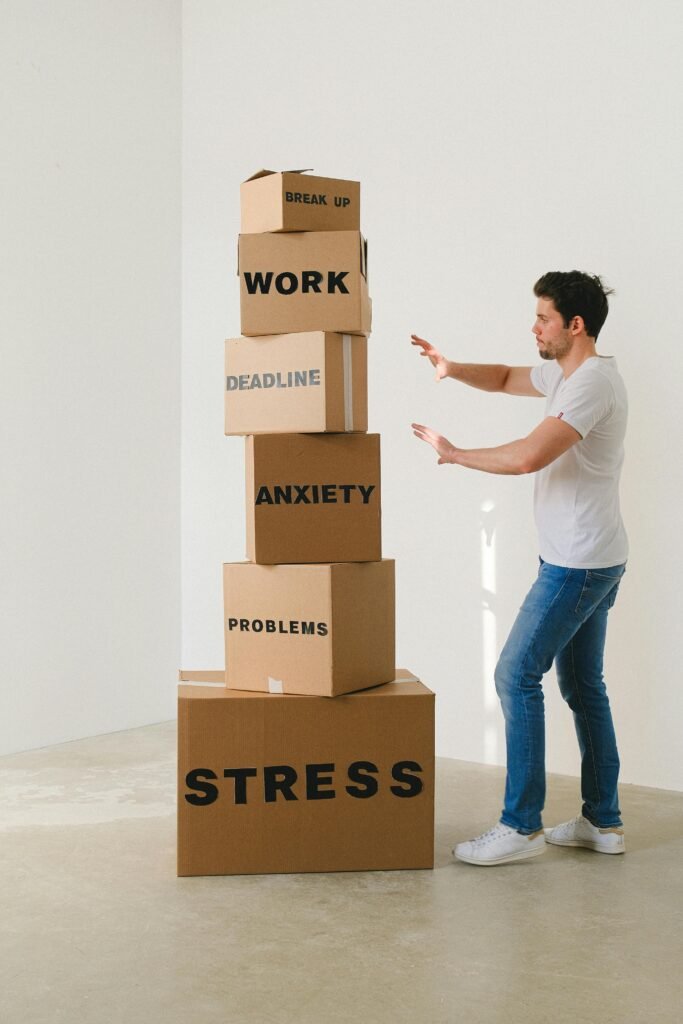The Science of Chronic Stress
Acute stress is short-lived and can even be beneficial, by sharpening focus and boosting performance. However, chronic stress—when the stress response is activated consistently over time—has far-reaching consequences.
- Neuroinflammation
Chronic stress causes an overproduction of inflammatory chemicals called cytokines, which can lead to neuroinflammation (inflammation of nerve tissue). This is associated with mental health issues like depression, anxiety, and even cognitive decline. (Ref: McEwen BS. Protective and damaging effects of stress mediators. N Engl J Med. 1998;338(3):171-179.) - Adrenal Fatigue and Dysregulation
Prolonged HPA axis activation can wear down your adrenal glands, leading to inconsistent cortisol levels. This contributes to fatigue, poor immune function, and hormonal imbalances. (Ref: Tsigos C, Chrousos GP. Hypothalamic-pituitary-adrenal axis, neuroendocrine factors, and stress. J Psychosom Res. 2002;53(4):865-871.) - Impact on Gut-Brain Axis
Stress directly impacts the gut-brain axis by disrupting the balance of gut bacteria and making your gut lining more prone to leaks.. This can lead to digestive issues, inflammation, and even exacerbate mental health conditions. (Ref: Chrousos GP. Stress and disorders of the stress system. Nat Rev Endocrinol. 2009;5(7):374-381.)
What Causes Stress?
Stress stems from various factors, often intertwined, making it feel overwhelming. It’s not just the big life changes but the accumulation of daily pressures that can tip the scales.
- Workplace Stress: The never-ending to-do list, tight deadlines, or lack of work-life balance can lead to burnout.
- Financial Pressures: The stress of paying bills, dealing with unexpected expenses, or navigating debt can feel relentless.
- Relationship Challenges: Disagreements, lack of support, or the responsibility of caregiving can strain even the strongest relationships.
- Health Concerns: Chronic illness or caring for a loved one’s health can add to an already full plate.
Understanding what triggers your stress is essential for finding effective solutions.


